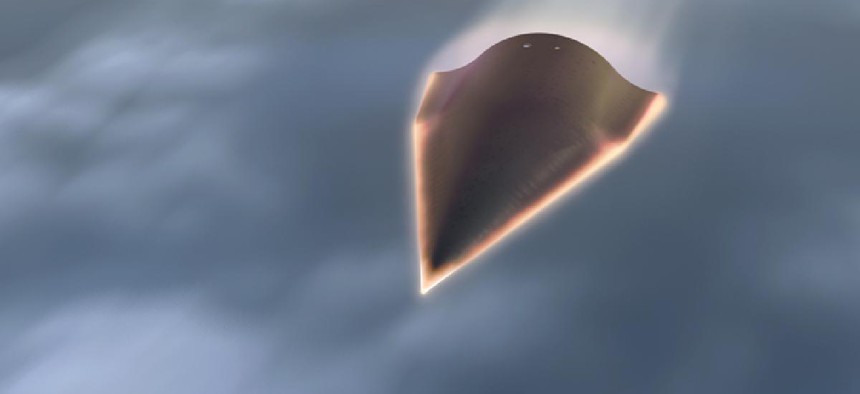Faster than a speeding bullet: Pentagon wants to fly anywhere in under an hour

The Falcon Hypersonic Technology Vehicle 2 DARPA
DARPA considers flight technology 20 times the speed of sound.
After last year’s failed attempt to fly what would have been the fastest aircraft ever built -- the experimental Falcon Hypersonic Technology Vehicle 2 -- the Pentagon wants to develop a flight vehicle that would “enable DoD to get anywhere in the world in under an hour,” the Defense Advanced Research Program Agency announced. DARPA is looking to spend $70 million on the program.
The Defense Department wants to “develop, mature, and test next-generation technologies needed for global-range, maneuverable, hypersonic flight at Mach 20” -- 13,000 miles per hour, or 20 times the speed of sound -- with the goal of test-flying an experimental vehicle by 2016, according to a draft solicitation.
The technology would give the U.S. an edge in stealth technology, where other nations are rapidly catching up.
DARPA, the Pentagon’s venture capital wing, is seeking engineers and scientists to develop the aircraft. The agency will host an industry briefing on August 14 in Arlington, Va., to discuss research areas it intends to fund. It plans to spend $40 million in base awards and an additional $30 million for optional renewals as part of the Integrated Hypersonics funding program.
DARPA is specifically interested in funding thermal protection technology. Aircraft get hot when flown at such high speeds and have to endure temperatures over 3,500 degrees Fahrenheit. The skin of the experimental Falcon Hypersonic Technology Vehicle began peeling off during its 2011 flight in the searing heat, an investigation into the failed demonstration revealed.
The agency also is seeking proposals on how to design the vehicle’s aerodynamics along with its guidance, navigation and control system, propulsion elements, and data collection technology.
DARPA will issue another solicitation for a contractor to integrate the technologies developed into the vehicle for a test flight by 2016, contract documents say.
In the meantime, DARPA intends to tap aerospace contractor Lockheed Martin Corp. to draw on designs from the Hypersonic Technology Vehicle to assemble and test in-progress ideas through 2014, according to a notice of intent to award the contract without competition.





